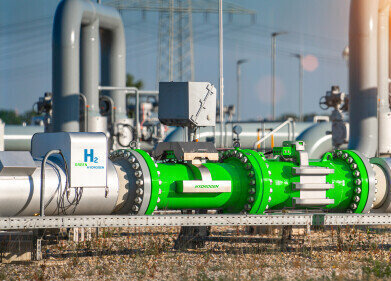Biofuel industry news
How Are Biofuels Tested?
Mar 16 2021
Biofuels can comprise a viable and renewable alternative to the petrol and diesel we use in our cars and the oil, gas and coal combusted in our power stations. However, it’s important to ensure that these substances are free from impurities in both applications, since a contaminated fuel stock can cause significant damage to the internal components of engines, supply systems and other technical equipment.
The process of testing biofuels and analysing the results should only ever be handled by an experienced professional who meets all relevant safety standards, including ASTM, EN and ISO, among others. The exact process which is followed may differ depending on the specific type of biofuel involved and the application for which it is used, but will broadly follow the same guidelines.
What do biofuel tests look for?
A comprehensive analysis of a biofuel sample will test for its compositional makeup and characterisation, as well as assessing its overall quality. It will also determine the presence and concentration of contaminants like ash, sulphur and chlorine which can compromise the performance of the fuel. The article Ensure Accurate Results for Sulfur and Chlorine Analysis in Biodiesels delves deeper into this subject for those interested, with particular emphasis on the testing of biodiesels.
Meanwhile, there are also occasions on which biofuels are not appropriate. For example, there are many vehicles in the UK whose engines cannot process biofuels on their own. For that reason, they must be used as an additive in specific quantities only; biofuel testing can help to ensure the concentrations being used are safe and effective. Meanwhile, biodiesel is not suitable for use in the aviation industry all, which is why analysing jet fuel for biofuels contamination is an important safety consideration for those associated with the sector.
How is biofuel testing conducted?
Regardless of the specific biofuel which is being tested, the process which is followed is a complex and sensitive one. Therefore, it’s best to contract a quality biofuel testing company to conduct the analysis, thereby giving you complete peace of mind that the procedure is being handled safely and professionally.
To arrive at a comprehensive analysis of the biofuel in question, it’s important to take at least three samples from different levels of the storage system. Samples collected from the bottom of the tank will indicate whether the biofuel has become compromised by any of the contaminants mentioned above. Those harvested from the middle of the tank will indicate how the contamination is settling in the fuel, while those at the top will reflect what results may be possible if biofuel cleansing is applied.
Digital Edition
PIN 26.1 Feb/Mar 2025
March 2025
Analytical Instrumentation - Elemental Analysis for Quality and Process Control at Refineries, for Lubricants and Wear Metals in Engine Oils - Synthetic Lubricants: New Developments - Scaling...
View all digital editions
Events
Apr 14 2025 Moscow, Russia
Apr 15 2025 Moscow, Russia
Apr 22 2025 Hammamet, Tunisia
Apr 22 2025 Kintex, South Korea
Solar & Energy Storage Summit 2025
Apr 23 2025 Denver, CO, USA



















